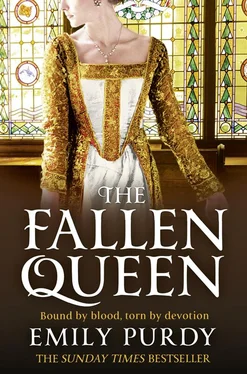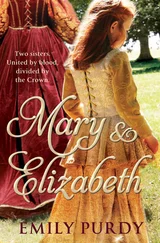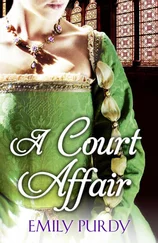Once when I sat curled in a corner, having nodded off over my embroidery, I started awake when Jane and the esteemed scholar Roger Ascham came in. With my tiny form in its midnight blue velvet gown half hidden by curtains and shadows of a similarly dark hue, they did not see me and I was too shy to stir myself and alert them to my presence. Master Ascham said to Jane that there was more to life than books, and she should, as becomes a young lady of noble birth, go out into the world more. He gestured out the window, at the Great Park, where our parents were even then hosting a grand picnic after a vigorous day’s hunting. But Jane only sighed and hung her white-coiffed head while a rosy blush suffused her cheeks as she hugged her book tight against her black velvet breast, like a beautiful young nun confessing impure thoughts to her confessor. Then, with downcast eyes, my sister sank down onto the window seat and laid her volume of Plato on the black velvet cushion of her skirt as though it were a holy relic. “All their sport is but a shadow to the pleasure I find in Plato. Alas, good folk, they never felt what pleasure truly means!”
Master Ascham cocked his brow and smiled and queried her in mock seriousness. “And how attained you, madame, this true knowledge of pleasure seeing that so few men and women have arrived at it?”
“I will tell you, sir,” Jane confided, “and it is a truth perchance that you will marvel at. One of the greatest gifts that God ever gave me is that He sent me, with such sharp, severe parents, so gentle a schoolmaster as Master Aylmer. When I am in the presence of my parents I must, whether I speak, keep silent, sit, stand, or go, eat, drink, be merry, or sad, be sewing, playing, dancing, or doing anything else, I must do it so perfectly as God made the world, or else I am so sharply taunted, so cruelly threatened, and tormented, with slaps, pinches, nips, and blows and other chastisements—which I shall not name for the honour I bear my parents—that I think myself in Hell, till the time comes when I must go to Master Aylmer, who teaches me so gently, so pleasantly, with such fair allurements to learn, that I think all the time nothing while I am with him and am as a vessel to be filled with the knowledge he pours into me. And when I am called away from him, I fall to weeping, because whatever else I do but learning is full of great trouble and misliking for me. And thus my books have been so much my pleasure—nay, my only pleasure!—and all that others call pleasure is naught but trifles and troubles to me.”
“Oh, my dear child!” Master Ascham cried and tenderly pressed her lily-pale hand to his lips and held it there for a very long time.
I saw the smallest flicker of a smile twitch Jane’s lips, and at the time, being so young, I wondered if his long, curly beard was tickling her hand, or perhaps he was in love with her, and she like any other maid was preening over her conquest, but now, as a woman grown older and wiser, I suspect that it was his pity that gave her the greatest pleasure.
While it is true that Jane was beautiful—if she had smiled and radiated charm and winning ways, she would have rivalled Kate as the beauty of the family—she was not blessed with these gifts, nor did she make any effort to cultivate them. On the contrary, she disdained them and flaunted a frankness that bordered on insolence. Tolerance and tact eluded her. No matter how much we encouraged her or how hard our lady-mother tried to instill grace and charm through beatings and harsh punishments, Jane dug in her heels like a balky mule and refused to budge.
In matters of faith and fashion she was intractable, and over both, she waged many a battle, and even though she won many, I always, in my heart, felt that she always lost. As Kate always used to tell her, “You win more friends with smiles than with frowns, and honey catches far more flies than vinegar.”
But for all her brilliance and book learning, Jane lacked the ability to make herself liked. All she had was her intelligence, learning, and religious zeal to win her applause, accolades, and admiration. And she knew it. So if she could not be loved, she decided she would be praised and venerated. She saw herself as a victim, and she would make sure others saw her the same way, and she would shackle this idea to her strong, unwavering Protestant faith to create an image that would never be forgotten, as memorable, powerful, and inspiring as the Maid of France.
In many ways, Jane created her own myth. I loved my sister, but I sometimes wonder if I would have loved her if she had not been my sister. She was dour and gloomy, the kind of dull, dreary, and pedantic person who rains on every picnic. But as much as Jane scorned love, and urged us to turn away from the flesh and despise it and look to our souls instead, her need for it was all the greater, and she needed us—her sisters, who knew her best—to love her. She needed love in life more than she needed this posthumous fame and a glorious martyrdom. I wish she had lived long enough to find it. I longed to see Jane transfigured by love, true love, not just that tantalizing glimpse I caught of her in the dying throes of a girlish infatuation she once confided to us, or fighting furiously against and despising herself for her deep-buried and denied attraction to Guildford Dudley. I wanted to see her as a woman in love with all her sharp edges softened and beautifully blunted and blurred by bliss. But the allure of the victim, the sacrifice, the forever young and beautiful martyr, proved too strong, and Jane chose a remarkable and romanticized death, a potent and inspiring memory for posterity to glorify and cherish, over an ordinary life and the joy that can be found in the right pair of arms.
I have only two portraits of my sister Kate, my sunshine girl, along with the letters she wrote to me, tied up in bunches with silk ribbons the colour of ripe raspberries, and a jewelled and enamelled hand mirror shaped like a mermaid, a memento from her first marriage.
Sometimes I imagine I can see her laughing, happy face reflected in the oval of Venetian glass framed by the sea nymph’s flowing golden tresses. How strange it is, it always strikes me when I contemplate these pictures, that in both of them Kate, who loved bright colours so, is dressed in black and white. Where are her favourite fire opals and flashing green emeralds? Neither portrait does justice to her great beauty of face and heart. Both are miniatures, round with azure grounds, the paint made from pulverized lapis lazuli, painted by Lavinia Teerlinc, a dainty, flaxen-haired Flemish woman. The first shows Kate at thirteen, her hair more golden than copper then beneath a gold-bordered white satin hood. It was painted when she was still new-married to her first husband, Lord Herbert, and trying to look grown up in a high-necked gown of black velvet edged with white rabbit fur and gold aglets all down the front and trimming the slashed sleeves, her chin sinking deep into the soft cushion of a gold-frilled ruff. Beneath these stark and severe matronly black-and-white trappings, her bubbly vivacity and charm are smothered so that if only this picture survives down through the ages none will ever know what she was really like. And that saddens me; I want everyone to know and love Kate as I did, before she became the tragic heroine, with “all for love” as her creed, living and dying for love.
In the second portrait she looks sad and sickly, or “heart-sore” as the poets might say, blessed with that peculiar kind of beauty that sorrow in some miraculous way enhances; for Kate, though her fame is far eclipsed by Jane’s, is Love’s martyr, not Faith’s. This picture shows an older and sadder Kate at twenty-three, clad yet again in black velvet and white fur, a loose, flowing, sleeveless black surcoat through which her thin arms clad in tight-fitting white sleeves latticed with gold embroidery protrude like sticks, the bones and veins in the backs of her hands distressingly bold. In this likeness, Kate’s bright hair is subdued and hidden beneath a plain white linen coif devoid of ornamentation, not a stitch of embroidery, not even a jewelled or gilt braid border or even a dainty frill of lace. And, though it doesn’t show in this picture, her waist is thickening and her belly growing round again beneath the loose folds of black velvet with her second son, Thomas. Ned, the husband who held her heart in his hand, is with her in the form of a miniature worn on a black ribbon around her neck, and in the child they made together, the rosy-cheeked baby boy, named Edward after his sire. Kate holds her son up proudly, grandly garbed, like a little prince, in a black velvet gown I made for him, striped down the front with silver braid, and cloth-of-gold sleeves with white frills at his neck and wrists, his little black velvet cap twinkling with diamonds and trimmed with jaunty tawny and white plumes. He clutches a half-ripe apple, its flesh both rosy red and gold blurring into green, and one can almost imagine it represents the orb that is put in the sovereign’s hand on their coronation day. Kate holds her son in such a way that the ring Ned put upon her finger on their wedding day is on display for all to see, the famous puzzle ring of five interlinked golden bands, as well as the pointed sky blue diamond betrothal ring, both declaring that this baby in her arms is not some baseborn bastard, an infant conceived in hot lust and shame, but a legitimately born heir with royal blood from both the Tudor and Plantagenet lines coursing through his veins like a scarlet snake that could someday rear up and strike down the Queen if those who oppose this petticoat rule of Elizabeth’s ever dare to raise his banner and fight to take the throne in his name.
Читать дальше












